In this blogpost Frederik Meyer and his colleagues talk about their research experience of investigating human impacts on the surface water quality and functioning in the Mendoza province of Argentina.
Background
Argentina is the sixth largest wine-producing country in the world, with Mendoza as the epicenter of its wine industry. It benefits from optimal conditions such as dry soils, low rainfall during the growing season and a water supply that comes from the nearby Andes. However, the lack of wastewater management outside the large cities at the foot of the Andes poses a risk of surface water pollution and impairs the flow of water, which is important for the regional water supply. As the decomposition of organic matter is crucial for the functions of the ecosystem, a research team from Landau under the lead of Prof. Dr. MircoBundschuh, together with the scientific team around Dr. Erica Scheibler and Dr. Gastón Iturburu from the national research institution Conicet, carried out studies on surface waters in different locations during two seasons. In order to compare and evaluate ecosystem functions and determine the extent of anthropogenic influences.
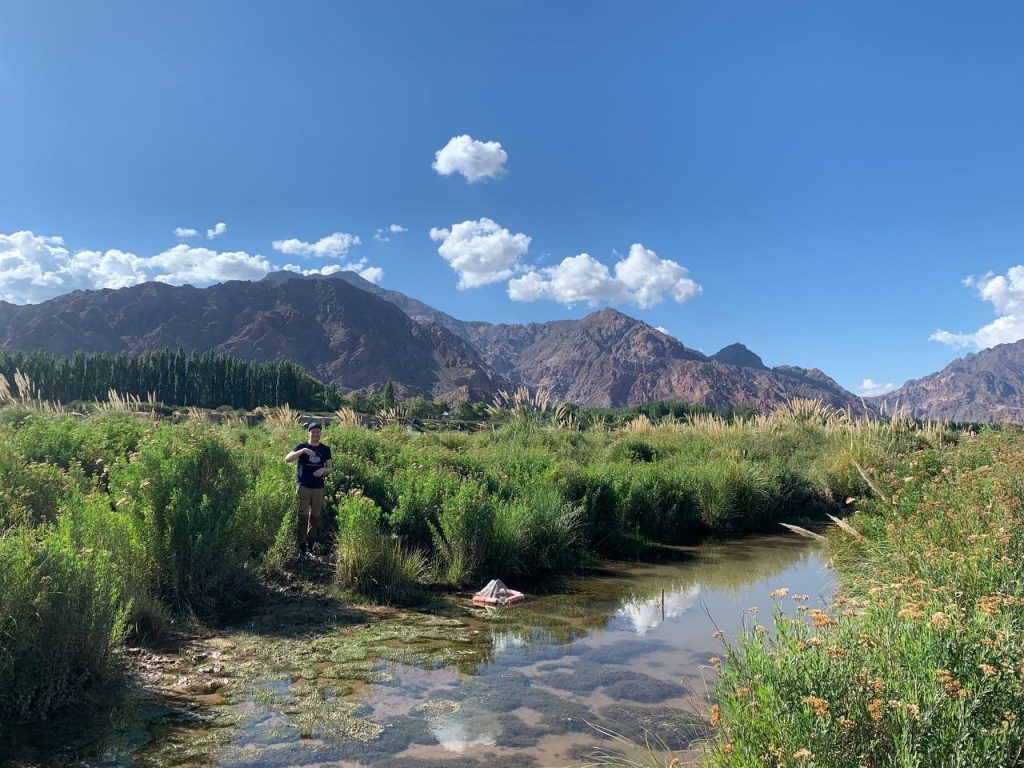
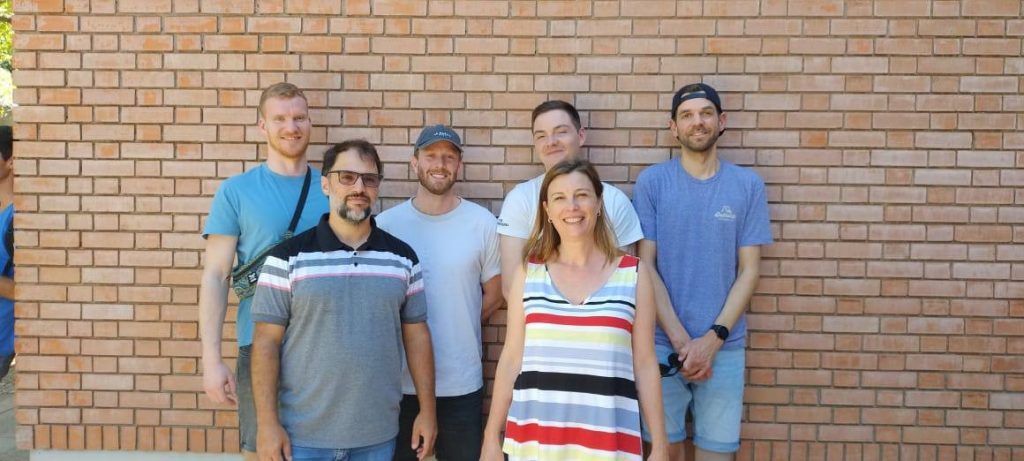
Methods
There are various methods for analyzing ecosystem functions. Many, many leaf bags were sewn, filled with one of three different native leaf species as well as a mix of all three. The leaves bags differed in their mesh size, so that either the microbial decomposition of the leaves could be examined, or, with larger mesh sizes, the interaction of microorganisms and detritivores could also be analyzed. Furthermore, tiles were placed in the water bodies to observe the periphyton production and later to analyze the photosynthetic performance. In addition, emergence traps were placed on the water bodies to compare the flux of biomass from aquatic to terrestrial systems in the form of emerging insects. The four sites were characterized by various land uses in their surrounding: irrigation ponds of an organic winery or a conventional winery close to the city of Mendoza, a groundwater body close to the Andes and a surface water body that is fed by meltwater from the Andes but tends to be heavily exposed to anthropogenic runoff and pollution.
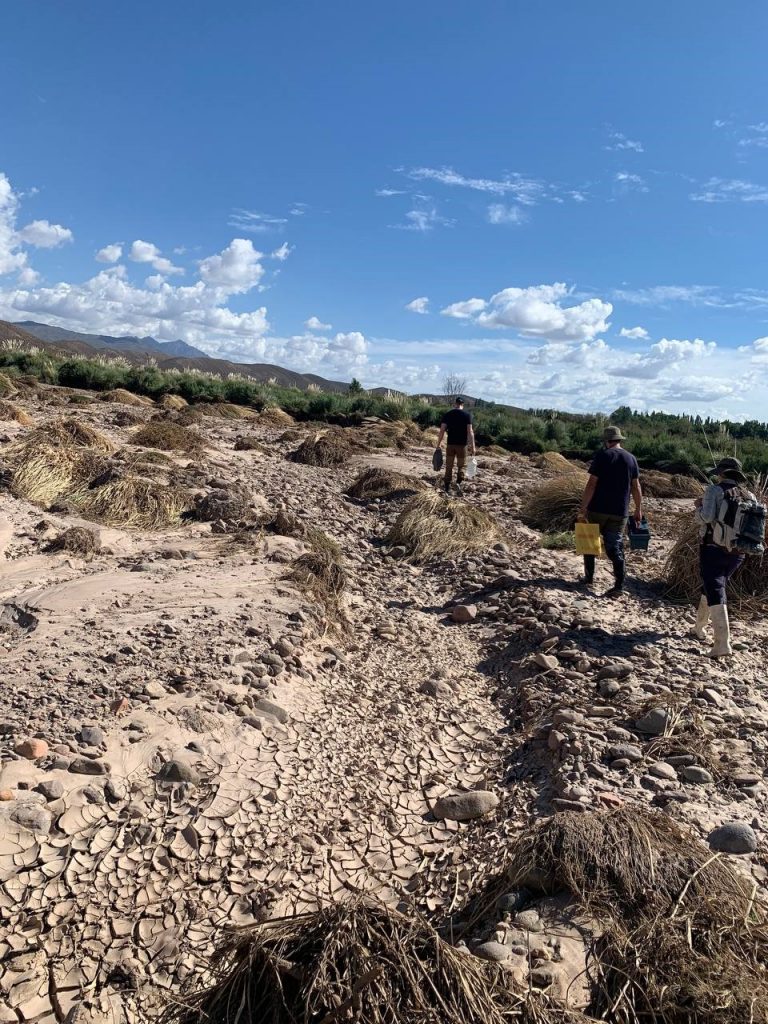
Experience
The experiments were performed in October 2023 and February 2024, which in correspond to the beginning of spring at a cozy 20°C and the height of summer at a relentless > 30°C, respectively. In both cases, it was a massive change from the freezing temperatures in Germany and you could almost always get to know the city, the culture, and the people in sunshine. It was an exciting experience for all of us involved in the project! Despite all similarities, some everyday realities of life look completely different. Starting with the inseparable Argentine mate, which accompanied us everywhere we went. Further the completely unimpressed Argentinians, for whom travelling several hundred kilometers by car is absolutely no problem on daily business (or for sampling sites), to the complications of hyperinflation while never losing their composure or enjoyment of life and where there is always time for a kind and curious chat with strangers, even if most of it is lost in translation. The combination of the people on site, the super friendly welcome we received at the institute, and the incredible views at the rehearsal locations made the work amazingly enjoyable.
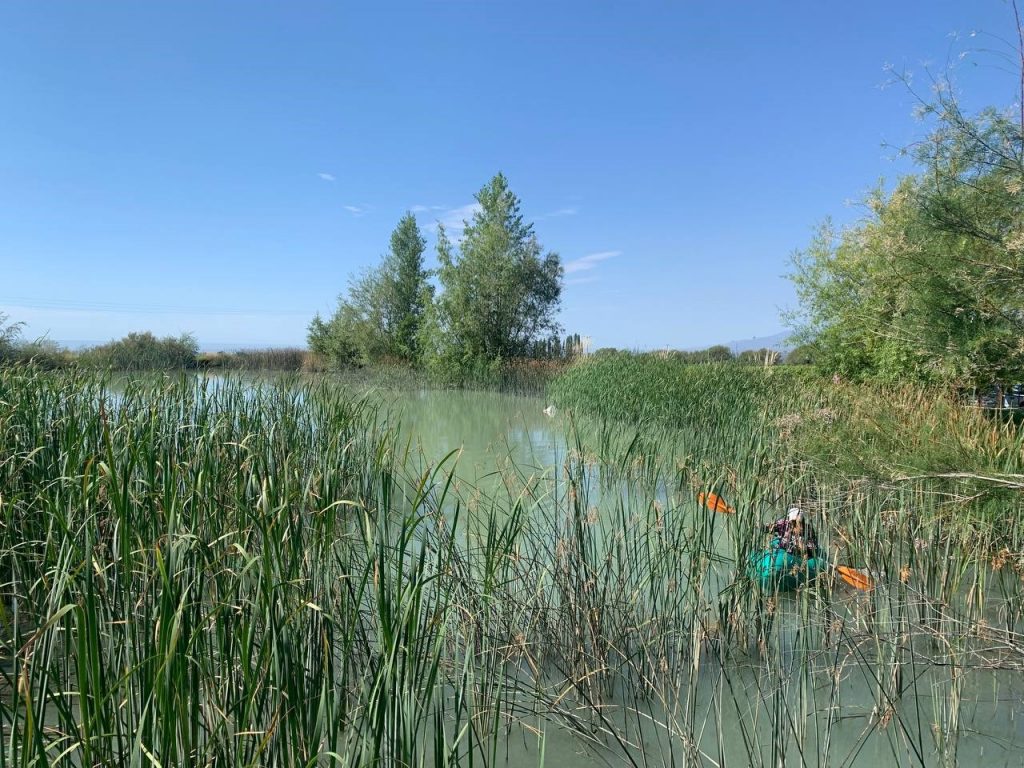
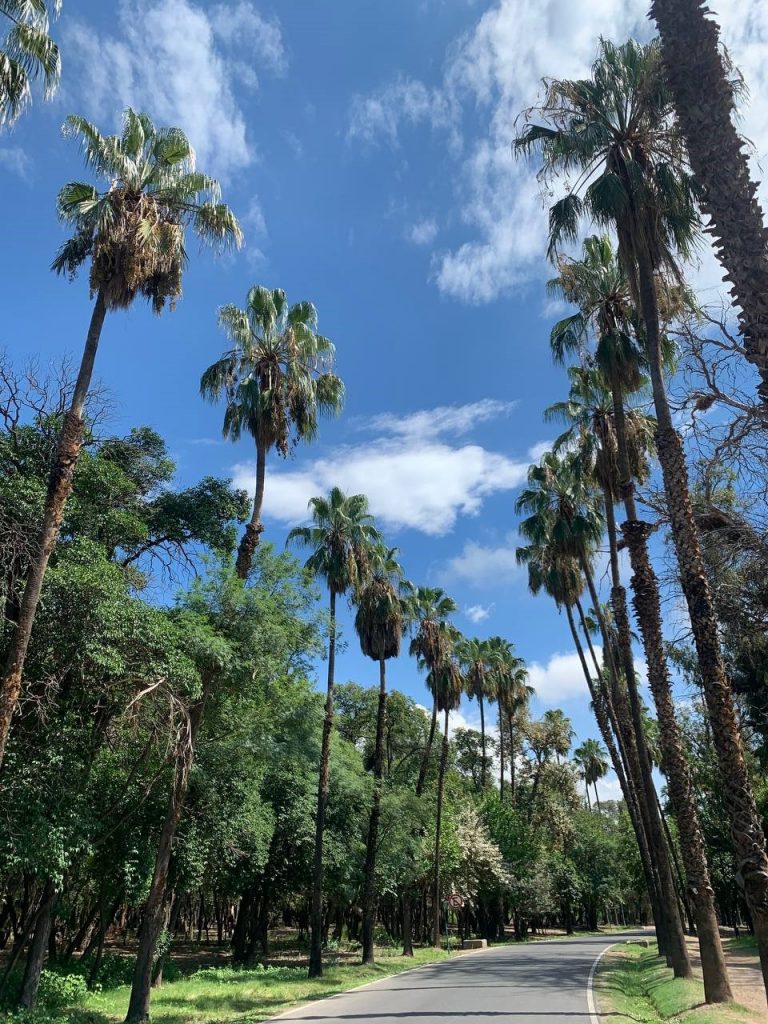
The research project and cooperation is conducted by the Functional Aquatic Ecotoxicology working group headed by Prof. Dr. Mirco Bundschuh and in cooperation with the scientific team around Dr. Erica Scheibler and Dr. Gastón Iturburu from the National Research Institution Conicet.
